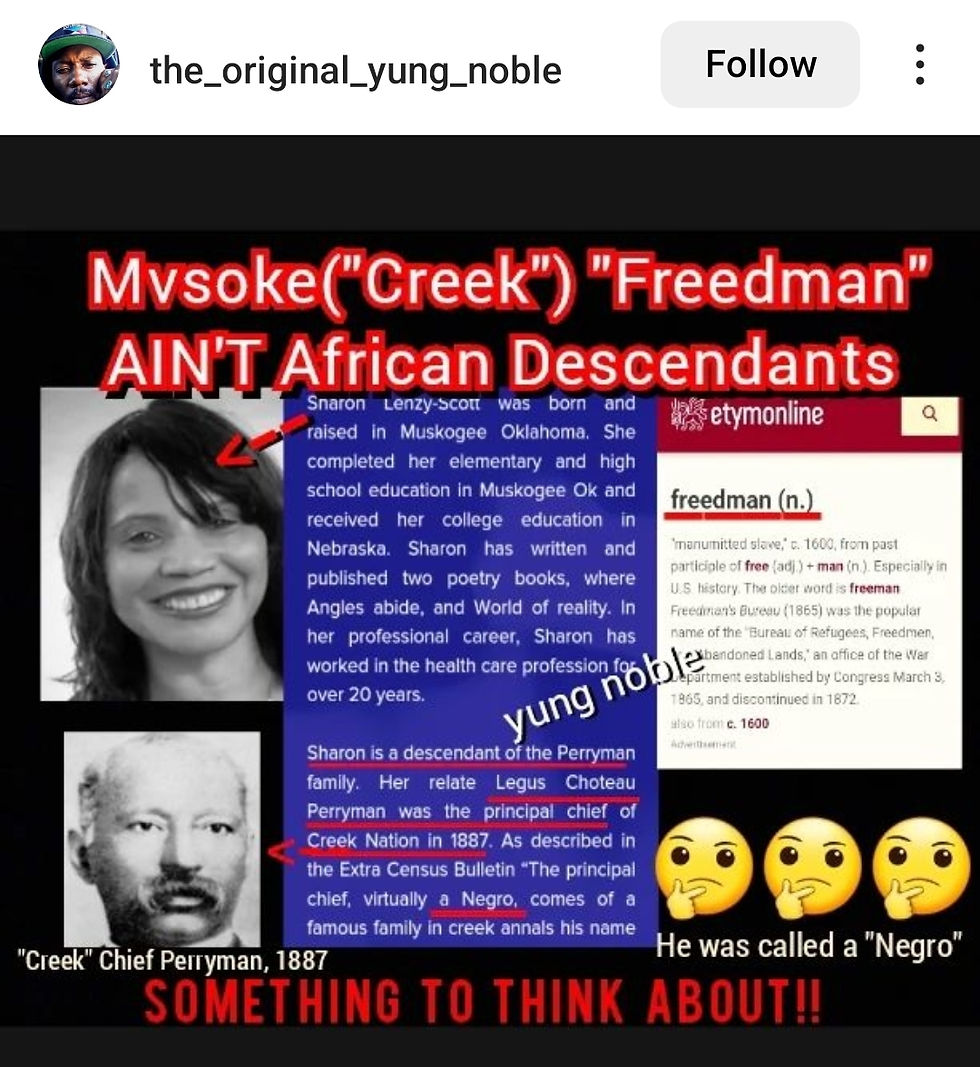Unveiling Roots: The Freedmen's Bureau and the Journey to Indigenous American Ancestry
- Urban Indian
- Nov 10, 2023
- 2 min read
Updated: Nov 23, 2023
The Smithsonian Institution along with the National Museum of African American History & Culture have released a search portal to assist in your research. Now, for many of us, tracing our roots can feel like digging for treasure in a haystack, but the Freedmen's Bureau is a key to unlocking the chest of our past. Hold on tight, 'cause this story is about to take us on a ride through time, from the aftermath of the Civil War to a connection with our Native American ancestors.
Picture this: it's the late 1800s, the dust is settling after the Civil War, and the Freedmen's Bureau steps onto the stage. Created to help recently freed slaves transition to freedom, it was like a beacon of hope in a storm. Schools, hospitals, and employment assistance – the bureau had its hands in everything, trying to stitch up the wounds left by slavery.
Now, let's get down to the nitty-gritty. Our ancestors, many of whom were held in captivity by Native American tribes, were caught up in a web spun by rival tribes and European settlers. Native Americans took prisoners of war from other (indigenous) tribes and, sadly, sold them into slavery alongside the Europeans. That tangled web? We're part of it.
Fast forward to the Freedmen's Bureau, and it becomes the map leading us back through the labyrinth of our lineage. As we sift through the records, we find traces of our ancestors' resilience, strength, and determination to forge ahead, even when the odds were stacked like a game of Jenga.
Now, let's talk about a different kind of history – the one where the rug gets pulled from under us. You know how they say "Robbin' Peter to pay Paul"? Well, in this case, it's more like "Robbin' the Freedmen's Bureau to fund other agendas." Our very own U.S. presidents played a hand in this high-stakes poker game.
Imagine this: funds meant to uplift our people, educate our children, and provide healthcare, siphoned off like water in a leaky bucket. It's a tale of promises broken and a trust betrayed. Presidents came and went, but the debt owed to the Freedmen's Bureau lingered in the shadows, a ghost of a promise haunting the corridors of history.
So here we are, millennial torchbearers of a legacy forged in adversity. The Freedmen's Bureau isn't just a relic; it's a roadmap to our roots. It's a testament to the fact that our story, though scarred by injustice, is woven with threads of resilience and triumph.
As we unravel the layers of history, let's remember those who came before us. The Freedmen's Bureau might have faced its share of betrayals, but its significance in our journey is undeniable. It's time we claim our narrative, dig deep into our roots, and let the echoes of the past guide us toward a future where our history is not just remembered but celebrated.
The Smithonian Institution along with the National Museum of African American History & Culture have released a search portal to assist in your research. The Freedmen's Bureau Search Portal


.jpg)



.jpg)
تعليقات